Our Facilities
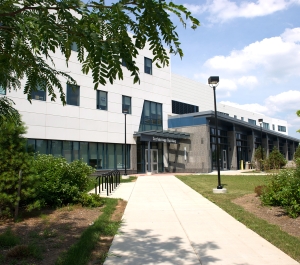
Technology Building
Buffalo State's ultramodern Technology Building houses the departments of Engineering Technology, Fashion and Textile Technology, and Computer Information Systems, and provides research spaces and student computer labs. This "green" building has a vegetated lower roof area and a photovoltaic collector on its upper roof.
The Technology Building includes a state-of-the-art fabric printer and two 3D printers that enable students and researchers to produce working models and prototypes. This facility marks another milestone in Buffalo State’s construction boom.
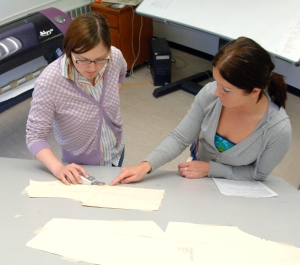
CAD/CAM Lab
The CAD/CAM system is an integral part of the fashion and textile technology curriculum. In this lab, fashion students are exposed to the technical processes used in apparel/textile design and production.
CAD/CAM Lab Facilities
- Adobe Creative Suite (Photoshop, Illustrator, InDesign, Acrobat)
- Lectra (Diamino, Modaris, U4ia, PrimaVision)
- OptinTex (PDS, Mark, Grade, Digitize, Modulate, 3D Runway Suite)
- NedGraphics Fashion and Print Studio
- Lectra U4ia
- Age Technologies
- Sourcing Simulator
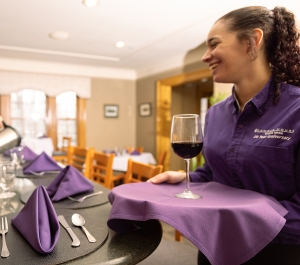
Campus House
Campus House is a training facility that also serves as a social club for faculty, staff, alumni, and friends of the university. The former residence of the first three Buffalo State presidents, Campus House provides an innovative, hands-on teaching and research laboratory for hospitality students, who earn academic credit as they create original menus, manage and market the club, and conduct hospitality and tourism-related research.
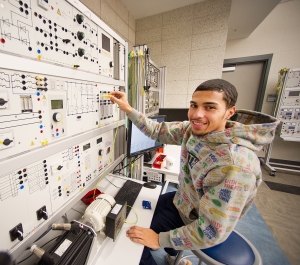
Smart Grid Laboratory
A facility used by Buffalo State, the University at Buffalo, and the power system community, the Smart Grid Lab is located on the Buffalo State campus and helps to train undergraduates and graduates in smart grid technology, preparing them for "green jobs."
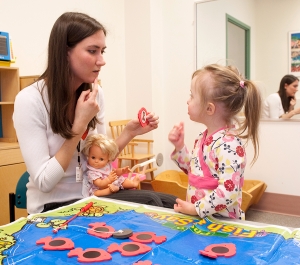
Speech-Language-Hearing Clinic
The recently renovated Speech-Language-Hearing Clinic at Buffalo State was established in 1956 as part of the Speech-Language Pathology Department. Clinic services are provided by graduate students in training under the direct supervision of members of the department's faculty and staff. All supervisors are licensed by New York State and hold the Certificate of Clinical Competence from the American Speech-Language-Hearing Association.
The clinic provides services to individuals of all ages. Services are available for articulation and phonological disorders, language impairments, aphasia, voice disorders, hearing disorders, fluency disorders, traumatic brain injury, and accent reduction.
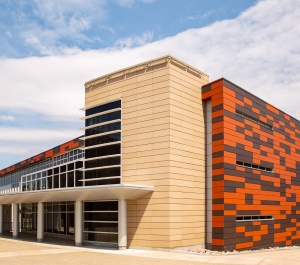
Caudell Hall
This significantly updated building houses three departments within the School of the Professions: Hospitality and Tourism, Social Work, and Speech-Language Pathology.
The entire three-story interior of the 21,000-square-foot building has been gutted and renovated. The first floor now boasts an expanded lobby and houses classrooms, a conference room, and cutting-edge food laboratories for the Hospitality and Tourism Department, including one with a demonstration area opening into the main lobby. This significant renovation recently earned the Business First "Best Collegiate Project" award.
Since 2011, New York State has invested more than $325 million in new capital projects and renovations at Buffalo State.
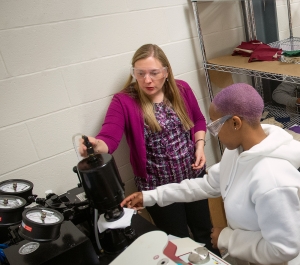
FTT Textile Laboratory
The textile laboratory is used primarily by students in the textile evaluation course, allowing students to use testing equipment in a manner similar to a commercial testing laboratory. For class projects, the students test textiles products following standards set by AATCC and ASTM.
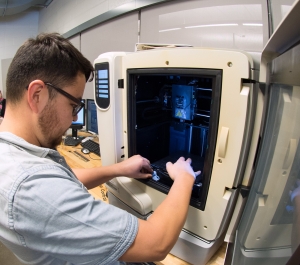
3D Printing Laboratory
The 3D printing process turns a whole object into thousands of tiny little slices, then makes it from the bottom-up, slice by slice. Those tiny layers stick together to form a solid object. Each layer can be very complex, meaning 3D printers can create moving parts like hinges and wheels as part of the same object.
Besides rapid prototyping, 3D printing is also used for rapid manufacturing. Rapid manufacturing is a new method of manufacturing where companies are using 3D printers for short run custom manufacturing. In this way of manufacturing, the printed objects are not prototypes but the actual end user product.
The Engineering Department utilizes two types of 3D printers for student & faculty use: the Objet260 Connex3 and uPrint SE Plus. These machines can print a wide variety of models and prototypes, in over 1,000 different material options. Users can also create complex parts and assemblies in a combination of materials for their specific projects.
